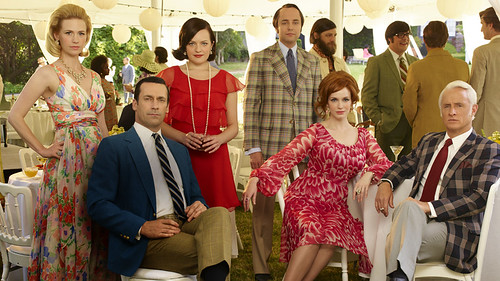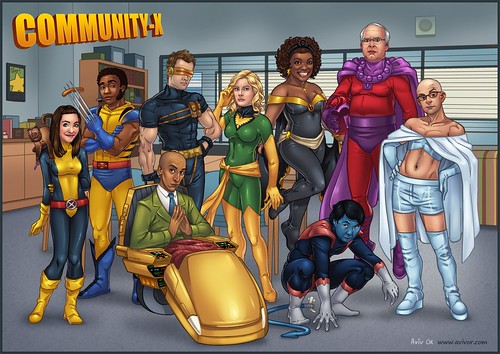Spoilers galore!
Don’t say we didn’t warn you.
The latest season of Game of Thrones is coming to a close. We’ve seen uprisings, great battle scenes, a giant we totally want to hang out with, another terrible, horrible, no good, very bad wedding, and finally — finally! — Dany flying on a dragon, even if it was a bit Falcor-esque.
And as with seasons past, we’ve been collecting the most interesting GoT words. Here are 14 of our favorites.
Black Wedding
“Game of Thrones is famous for its tragic weddings, but last night the show pushed that into even darker territory with what fans have dubbed ‘the Black Wedding.’”
Mallory Busch, “Twitter Was Not Okay with the ‘Black Wedding’ on Game of Thrones,” TIME, May 18, 2015
Another season of Game of Thrones, another horrible wedding. We’ve already had the bloody Red Wedding and the poisonous purple one. Now we have the Black Wedding to add to our GoT lexicon.
The Black Wedding is what fans have dubbed the nuptials between Sansa Stark and Ramsay Bolton, nee Snow, in the episode “Unbowed, Unbent, Unbroken.” The ceremony takes place in the darkness of the Godswood, but the situation turns even darker when Ramsay horrifically assaults his young bride on their wedding night.
dragonglass
Stannis: “You don’t look like a soldier. But I’m told you killed a white walker. . . .How?”
Sam: “With a dagger made of dragonglass.”
“Kill the Boy,” May 10, 2015
Dragonglass is Westeros vernacular for obsidian, a volcanic glass formed from rapidly cooling lava. The word obsidian comes from the Latin obsidiānus, a misprint of obsiānus, “lapis,” named after Obsius, the Roman who supposedly discovered the stone.
Dragonglass and Valyrian steel are the only two known substances that can kill White Walkers.
Faith Militant
Cersei [to the High Sparrow]: “In the days before the Targaryens, the Faith Militant dispensed the justice of the Seven.”
“Sons of the Harpy,” May 3, 2015
The Faith Militant are the barefoot and berobed army of the Faith of the Seven, the dominant religion of the Seven Kingdoms. The religious regiment was disbanded long ago by King Maegor Targaryen but has made a fast and furious comeback.
Author George R. R. Martin has said the Faith Militant are based on the medieval Catholic Church, complete with corrupt religious leaders, aggressive reformation, and one god with multiple aspects, in this case seven as opposed to the three of the Trinity of the Catholic Church.
Graces
Announcer: “Free citizens of Meereen! By the blessings of the Graces and her majesty the Queen, welcome to the Great Games!”
“The Dance of Dragons,” June 7, 2015
The Graces are priestesses of the Ghiscari religion in Slavers’ Bay. While they have yet to appear on the show (at least as of this penultimate episode), in the books they wear different-colored robes according to their hierarchy. Red Graces are “cult prostitutes,” or those involved with sacred prostitution; Blue Graces are healers; White Graces are “young girls of noble birth” with yet undetermined grace-y skills; and the Green Grace, of which there’s only one, is the high priestess.
greyscale
Gilly: “What do you call it in the south? What happened to your face.”
Shireen: “Greyscale.”
“The House of Black and White,” April 19, 2015
Greyscale is a contagious and often fatal disease that leaves the flesh scaly, gray (hence, the name), and “stone-like to the touch.” Princess Shireen Baratheon survived the disease, only to be left disfigured.
Greyscale might be likened to such real-life diseases as leprosy and ichthyosis. Leprosy, also known as Hansen’s disease, is contagious and causes ulcers of the skin, bones, and organs, often leading to loss of sensation, gangrene, and paralysis. Ichthyosis is hereditary and characterized by “dry, thickened, scaly skin,” hence its nickname, fishskin disease. The word ichthyosis comes from the Greek ikhthys, “fish.”
High Septon
Cersei: “The High Septon‘s behavior was corrosive, as was his attitude.”
“High Sparrow,” April 26, 2015
The High Septon is to the Faith of the Seven as the Pope is to the Catholic Church. “As the High Septon of the Faith of the Seven,” says the High Septon shortly after being found in a brothel, “I give voice to the will of the Gods and I am their foremost servant in this world.”
You probably won’t find this definition of septon in traditional dictionaries. The Century describes septon as “a principle formerly supposed to be the essence of infection,” while the Oxford English Dictionary says it’s a name for nitrogen, “from its being regarded as the agent in putrefaction.”
A discussion at Wordsmith.org describes septon as a word commonly used in science fiction and fantasy to describe the leader of a sept, or a division of a family or clan. Sept is probably an alteration of sect, which comes from the Latin secta, “course, school of thought.”
House of Black and White
Ternesio Terys [to Arya]: “The House of Black and White. This is where you’ll find the man you seek.”
“The House of Black and White,” April 19, 2015
Both a temple dedicated to the Many-Faced God and the headquarters of professional assassins known as the Faceless Men, the House of Black and White is so-called because half its door is ebony and the other half weirwood, which is white.
In the House of Black and White is the Hall of Faces, a crypt for the faces of the dead, which the Faceless Men use to change their appearance.
The Long Farewell
Tyene: “My dagger was coated with a special ointment from Asshai. They call it the Long Farewell. It takes time to work, but if a single drop makes contact with the skin, death.”
“The Gift,” May 24, 2015
The Long Farewell is native to the city of Asshai, which is to “the distant east of the Free Cities, Dothraki Sea, and Slaver’s Bay.” Other poisons of Westeros include Wolfsbane; Essence of Nightshade, a calming agent in small doses but fatal in large doses; and the Strangler, the culprit in King Joffrey’s wedding death.
Many-Faced God
Jaqen: “Lana is very impressive. Very industrious. She will make a fine servant for the Many-Faced God.”
“Hardhome,” May 31, 2015
In the books, the Many-Faced God is also known as Him of Many Faces, and is only called the God of Death in the TV series. The Faceless Men in particular worship this god and believe that the god “is unknowingly worshipped by most faiths, simply under different names,” and, presumably, faces.
Other gods with multiple faces include Janus, the Roman god of gates and doorways, depicted with two faces looking in opposite directions, and Brahma, the creator god in Hinduism, depicted with four faces for each of the four Vedas, or sacred texts.
Master of Coin
Cersei [to Mace]: “As the King’s Master of Coin, I can think of no one more qualified.”
“Sons of the Harpy,” May 3, 2015
The Master of Coin is basically the royal treasurer of Westeros. The position was previously held by Petyr “Littlefinger” Baelish, who was seen as a true money master, “always about to conjure up gold to meet the Crown’s demands,” but who was actually borrowing huge sums from the Iron Bank of Braavos, leaving the Iron Throne in debt.
Master of War
Kevan: “What mission?”
Cersei: “That is not your concern as Master of War.”
“The House of Black and White,” April 19, 2015
Unlike the Master of Coin, the Master of War isn’t a “real” position in the Small Council but one Cersei devised to offer to her uncle with the purpose of stacking “stack the Small Council with sycophants.”
Sons of the Harpy
Daenerys: “Sons of the Harpy. . . .They’ve never killed before.”
Ser Barristan: “It was only a matter of time, your Grace.”
“The Wars to Come,” April 12, 2015
The Sons of the Harpy are gold-masked anti-Khaleesi marauders, hell-bent on killing the queen’s army. The Sons’ masks resemble the Harpy, which “takes the form of a giant gold statue atop the Great Pyramid, aka Dragon Queen HQ,” and which Daenerys covered with “a black banner bearing the three-headed red dragon insignia of House Targaryen.”
But who are the Sons of the Harpy the sons of? Some believe they’re controlled by the Masters of Slaver’s Bay, who lost everything when Dany freed their slaves. A fan theory suggests the Harpy is the Green Grace, the Ghiscari high priestess of Slaver’s Bay.
The word harpy comes from the Greek Harpiya, “snatchers.”
Sparrows
Kevan Lannister [to Cersei]: “They call themselves Sparrows. Bloody fanatics.”
“The Wars to Come,” April 12, 2015
The Sparrows are the un-armed version of the Faith Militant. This extremist division of the Faith of Seven was originally formed in response to “the suffering being inflicted on the commoners,” and become the Faith Militant after Cersei appointed the High Sparrow, the leader of the Sparrows, as the High Septon, and gave the Sparrows weapons. Of course this ends up being to her own demise.
Stone Men
Tyrion: “Stone Men. Good luck stopping this spread of greyscale with prayer.”
“High Sparrow,” April 26, 2015
Stone Men is the moniker given to those severely afflicted with greyscale and who have been exiled in a colony in the ruins of Old Valyria, much like lepers were once exiled to such isolated places as the Kalaupapa Peninsula of Hawaii.
Leper colonies, leprosariums, and lazar houses are all places used to quarantine those with leprosy. The word leper comes from the Greek lepros, “scaly,” while lazar comes from the New Testaments’s Lazarus, the “beggar full of sores” who would rise from the dead.
Want more GoT? Revisit our favorite words from seasons three and four, and definitely don’t miss the musical.






